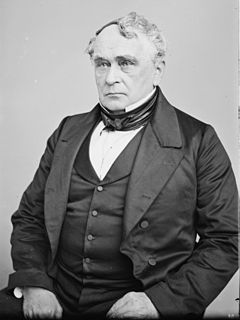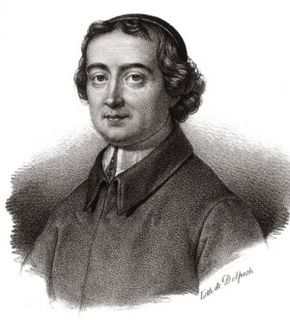A Quote by Francis Lieber
Great truths always dwell a long time with small minorities, and the real voice of God is often that which rises above the masses, not that which follows them.
Related Quotes
Yes, great God, these torrents of tears which flow down from my eyes announce thy divine presence in my soul. This heart hitherto so dry, so arid, so hard; this rock which thou hast struck a second time, will not resist thee any longer, for out of it there now gushes healthful waters in abundance. The selfsame voice of God which overturns the mountains, thunders, lightens, and divides the heaven above, now commands the clouds to pour forth showers of blessings, changing the desert of his soul into a field producing a hundredfold; that voice I hear.
Terrorism thrives on administrative violence and injustice; that is the only atmosphere in which it can thrive and grow. It sometimes follows the example of indiscriminate violence from above; it sometimes, though very rarely, sets it from below. But the power above which follows the example from below is on the way to committing suicide.
I want to remind priests that the confessional must not be a torture chamber but rather an encounter with the Lord’s mercy which spurs us on to do our best. A small step, in the midst of great human limitations, can be more pleasing to God than a life which appears outwardly in order but moves through the day without confronting great difficulties. Everyone needs to be touched by the comfort and attraction of God’s saving love, which is mysteriously at work in each person, above and beyond their faults and failings.
There are ancient and modern poems which breathe, in their entirety and in every detail, the divine breath of irony. In such poemsthere lives a real transcendental buffoonery. Their interior is permeated by the mood which surveys everything and rises infinitely above everything limited, even above the poet's own art, virtue, and genius; and their exterior form by the histrionic style of an ordinary good Italian buffo.
It is one of the saddest spectacles of our time to see a great democratic movement support a policy which must lead to the destruction of democracy and which meanwhile can benefit only a minority of the masses who support it. Yet it is this support from the Left of the tendencies toward monopoly which make them so irresistible and the prospects of the future so dark.
There are great truths at the foundation of Freemasonry, truths which it is its mission to teach and which is constituting the very essence of, that sublime system which gives the venerable institution its peculiar identity as a science of morality, and it behooves every disciple diligently to ponder and inwardly digest.
This can never become popular, and, indeed, has no occasion to be so; for fine-spun arguments in favour of useful truths make just as little impression on the public mind as the equally subtle objections brought against these truths. On the other hand, since both inevitably force themselves on every man who rises to the height of speculation, it becomes the manifest duty of the schools to enter upon a thorough investigation of the rights of speculative reason, and thus to prevent the scandal which metaphysical controversies are sure, sooner or later, to cause even to the masses.
How often do we sigh for opportunities for doing good, whilst we neglect the openings of Providence in little things, which would frequently lead to the accomplishment of most important usefulness. Good is done by degrees. However small in proportion the benefit which follows individual attempts to do good, a great deal may thus be accomplished by perseverance, even in the midst of discouragements and disappointments.
Conscience is the voice of the soul, the passions are the voice of the body. Is it astonishing that often these two languages contradict each other, and then to which must we listen? Too often reason deceives us; we have only too much acquired the right of refusing to listen to it; but conscience never deceives us; it is the true guide of man; it is to man what instinct is to the body; which follows it, obeys nature, and never is afraid of going astray.


































